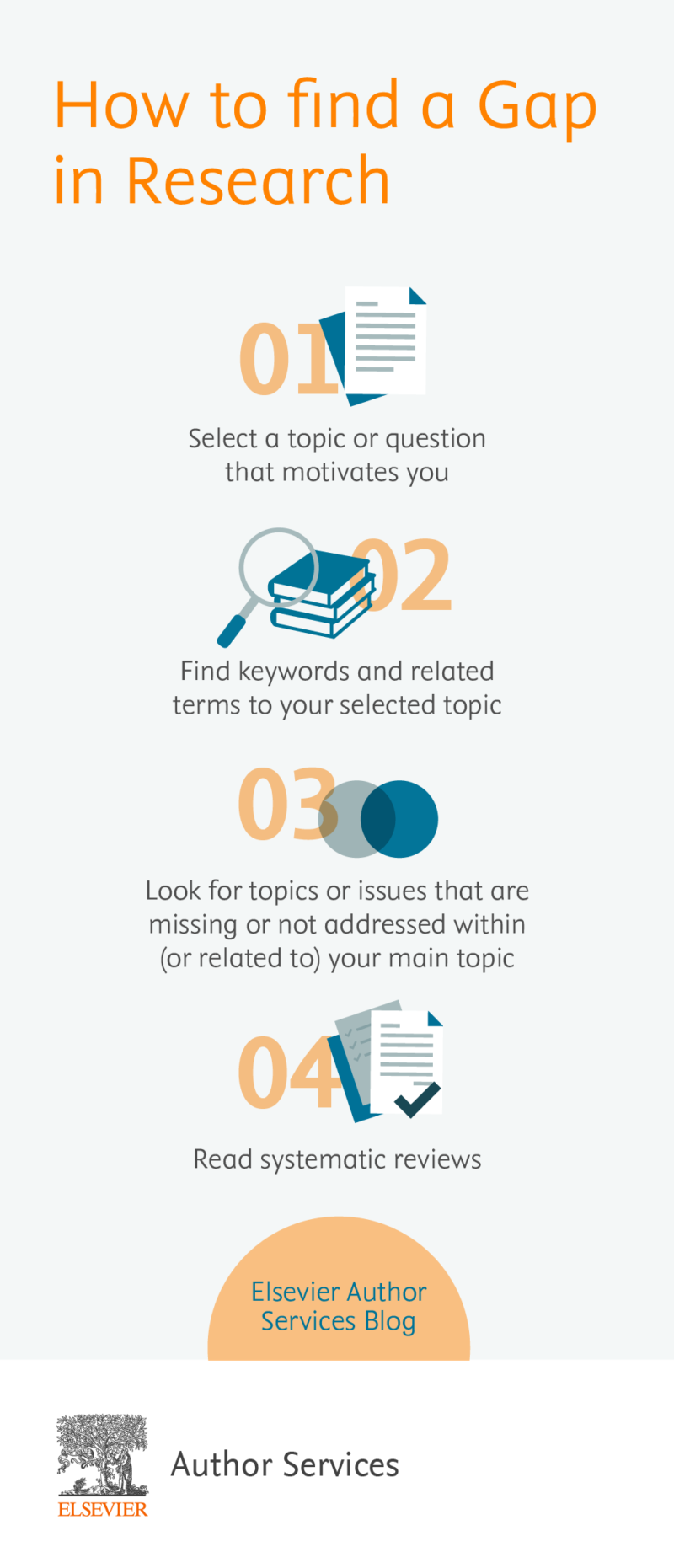How Why Write Critical Literature Review L2 the Art of Discovering Knowledge Gap?
If you are a immature researcher, or even still finishing your studies, you lot'll probably find that your academic surroundings revolves around certain enquiry topics, probably linked to your section or to the interest of your mentor and direct colleagues. For instance, if your department is currently doing inquiry in nanotechnology applied to medicine, it is only natural that you feel compelled to follow this line of inquiry. Hopefully, it's something you feel familiar with and interested in – although you might have your ain twists and turns along your career.
Many scientists end upward continuing their academic legacy during their professional careers, writing about their ain applied experiences in the field and adapting archetype methodologies to a nowadays context. However, each and every researcher dreams most existence a pioneer in a discipline one day, past discovering a topic that hasn't been approached before by whatever other scientist. This is a inquiry gap.
Research gaps are particularly useful for the accelerate of science, in general. Finding a research gap and having the means to develop a consummate and sustained report on it tin be very rewarding for the scientist (or team of scientists), not to mention how its new findings can positively touch our whole society.
How to Find a Gap in Research
How many times have you felt that you take finally formulated THAT new and exciting question, but to detect out later on that it had been addressed earlier? Probably more times than you tin can count.
In that location are some steps y'all can take to help place research gaps, since it is impossible to become through all the information and research available nowadays:
- Select a topic or question that motivates you: Research tin have a long fourth dimension and surely a large amount of physical, intellectual and emotional endeavor, therefore choose a topic that tin proceed you lot motivated throughout the procedure.
- Find keywords and related terms to your selected topic: Besides synthesizing the topic to its essential cadre, this will help you in the next step.
- Use the identified keywords to search literature: From your findings in the above pace, place relevant publications and cited literature in those publications.
- Look for topics or problems that are missing or non addressed within (or related to) your master topic.
- Read systematic reviews: These documents plunge deeply into scholarly literature and identify trends and paradigm shifts in fields of study. Sometimes they reveal areas or topics that demand more attention from researchers and scientists.

Keeping track of all the new literature being published every mean solar day is an impossible mission. Think that there is applied science to make your daily tasks easier, and reviewing literature can exist one of them. Some online databases offer up-to-date publication lists with quite effective search features:
- Elsevier's Scope
- Google Scholar
- PubCrawler
- Feedly
Of course, these tools may be more or less effective depending on knowledge fields. There might be even better ones for your specific topic of inquiry; you can learn near them from more experienced colleagues or mentors.
Notice out how Finer research framework can help y'all formulate your research question.
Literature Gap
The expression "literature gap" is used with the same intention as "inquiry gap." When there is a gap in the research itself, in that location volition also naturally be a gap in the literature. Nonetheless, it is important to stress out the importance of language or text formulations that tin can assist identify a research/literature gap or, on the other hand, making articulate that a research gap is being addressed.
When looking for research gaps across publications you may have noticed sentences similar:
…has/accept not been… (studied/reported/elucidated)
…is required/needed…
…the cardinal question is/remains…
…it is of import to address…
These expressions oftentimes betoken gaps; issues or topics related to the principal question that still hasn't been subject to a scientific written report. Therefore, it is important to have notice of them: who knows if ane of these sentences is hiding your way to fame.
Language Editing Services by Elsevier Author Services:
Find more about our Language Editing Plus! Done within 5 working days, it includes unlimited rounds of language review, a manuscript formatting to meet the requirements of the journal of your selection, a customized cover letter and an Cess Report on your certificate (and more than). You can look upwardly the concluding price via our Language Editing Simulator:
Type in wordcount for Plus
Follow this link if your manuscript is longer than 9,000 words.
Upload
Y'all May Likewise Similar
Source: https://scientific-publishing.webshop.elsevier.com/research-process/what-is-research-gap/
